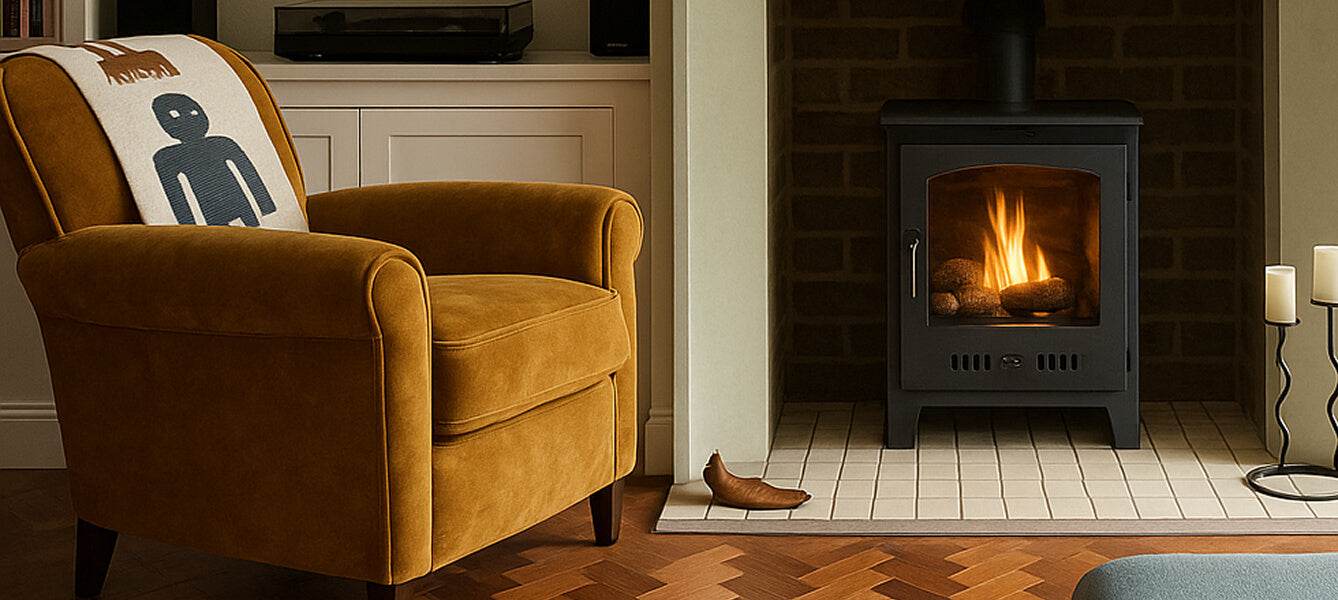Sometimes it can feel like climate change is an insurmountable problem that only world leaders can tackle.
But we're more in control of our carbon footprints than we think; we don't need to wait for politicians to make the big decisions for us.
There are currently 67 million people in the UK - and we can all minimise waste and move towards lower carbon practices. So, the big question is: what are we waiting for?
This article is all about how to reduce your carbon footprint at home. Because if we don't start at home, where will we start?
Ready? Let’s get to saving the planet!
What is the average carbon footprint of a UK resident?

The average UK citizen has an annual carbon footprint of 10 tonnes of CO2.
That's DOUBLE the world average!
And while the government claims the standard is 6 tonnes per person, this excludes imports and exports, as well as aviation and shipping.
The 10-tonne figure takes everything we do in an average year into account, including:
- Our diet — where our food comes from, including the haulage miles involved in getting it to your plate and the food we waste
- The way we heat our homes
- How we travel
- The things we buy
- The way we work
- What we wear
- The things we do for leisure
This means that our carbon destinies are truly in our hands. If our emissions are double that of other nations, there will be many small changes we can make to reduce how much we consume.
Which activities have the most significant impact on your carbon footprint?
The principal contributors to your carbon footprint are:
Eating meat
Livestock farming produces significant carbon emissions. For example, 1kg of beef is the equivalent of driving 160 miles in your car.
And while many people wouldn't consider completely cutting out meat from their diet, they could reduce the amount they eat.
Just one vegetarian day a week could make a big impact on your carbon footprint.
Home Energy Consumption
Many UK homes have poor insulation and sealing, leaking heat and letting in drafts.
This raises your energy bills and puts excessive demand on the power grid. Find out how to create a more sustainable home.
Excessive water use

Little things make all the difference, from taking showers rather than baths to not running the tap while brushing your teeth.
Each cubic metre of water we consume in the UK releases 10.6kg of carbon into the atmosphere, so every litre we waste has an impact on our carbon footprint.
Inefficient electrical appliances
Newer electrical products are more energy efficient than old ones. And while there's a cost in upgrading old gear, you'll make significant savings on your energy bills (and take the strain off the power grid).
Commercial Consumption
All commercial goods have an associated carbon footprint.
For example, cheap clothing made in China or India requires transportation, packing, and production and is often tailored in energy-inefficient sweatshops (while the workers are paid poorly for their labour).
The same goes for footwear and household/personal goods, such as products supplied in non-recyclable plastics.
Transportation
Of course, petrol and diesel cars produce carbon and greenhouse emissions. This means that we build up our carbon footprint every time we get behind the wheel (unless it’s an electric vehicle).
Even electric cars aren’t entirely carbon-neutral. There’s the energy required to manufacture the vehicle, then the electricity from the power grid to run it (unless you’re using a green energy provider).
Nonetheless, electric vehicles are much greener than petrol and diesel engines and could make significant changes in your carbon footprint.
Simple ways to cut back on your carbon

Cutting back carbon isn't about the government making decisions for us — it's about what we can physically do to ensure we value the resources available to us.
Our top tips are:
- Switch off the lights when you leave the room
- Take the stairs rather than use a lift or escalator
- Shut your windows if you’re using air-con/heaters in the home or car
- Take shorter showers
- Power down your laptop rather than leaving it in sleep mode
- Unplug unused electronics
- Keep the thermostat to a moderate temperature
- Wash full loads of laundry rather than small loads
- Switch to LED bulbs
- Use fewer or share appliances
How can I reduce my daily carbon footprint?
It doesn’t take a lot of effort to reduce your carbon footprint, but it does take some consideration:
Walking or riding a bike
Short car journeys are particularly damaging for the environment because the engine runs from cold. This causes much higher toxic emissions and is terrible for the mechanical integrity of your vehicle.
Instead, consider walking or riding a bike rather than driving short distances. Most people can walk a mile in under twenty minutes — simply adjust your timetable so you still arrive on time.
Walking or bike riding is an excellent way to incorporate more exercise into a busy schedule.
Stop buying plastic bottles

Although some people don’t believe it, UK tap water is completely safe to drink. And rather than drink perfectly good tap water, they buy water in plastic bottles, which is terrible for the environment and your pocket.
Think about it: a ½ litre bottle of water costs — on average — £1. That’s £2 per litre — way more expensive than petrol.
That means bottled water is outrageously expensive and incredibly wasteful (even if you throw the plastic bottle into the recycling bin).
Get yourself a reusable bottle instead, and fill it from the tap. You'll save money, and the planet will love you for it.
Keep your car tyres inflated
Your car has to work harder when the tyre pressure is low. This wastes power and increases emissions with petrol/diesel vehicles.
Simply topping up the air in your tyres every couple of weeks could significantly reduce your carbon footprint!
Eat local and sustainably
Aim to eat more food that's grown or made locally.
There will be far fewer food miles involved, and it won't have been sitting around on a supermarket shelf sweating under plastic wrap for a couple of weeks before it gets to your plate!
And try to eat less red meat if you can. If you do, source it locally.
Wash your clothes cold

Most laundry detergents provide excellent cleaning at lower temperatures these days — and you’ll save a surprising amount of power (and cash) if you wash your clothes at 20℃.
Washing at 20℃ reduces the running costs of your laundry by almost two-thirds compared to washing at 40℃.
When we're all trying to save on our household bills, every little helps! Check the packaging; it'll tell you if it's suitable for a twenty-degree wash.
Reuse rather than dump
We all throw away way too much in the UK, exacerbated by our love of a bargain.
Don't throw that cheap hoodie in the bin once you've done with it; take it to your local charity shop instead. Even cheap clothes are welcome - someone else will love them.
Equally, use your nose instead of slavishly relying on the Use By date of supermarket food. If it smells sour or looks mouldy, throw it in the green bin; but if it doesn't, it's usually fine to eat. Waste food turns to methane that pollutes the air if it's thrown into landfill.
Consider greener fuels for heating your home

Gas and electricity are expensive, and gas is awful for your carbon footprint. And while it's convenient to switch on the heating, it's certainly neither the cheapest nor greenest way to heat our homes.
Consider alternative fuels, such as bioethanol - an alcohol-based product made from agricultural waste products that would have otherwise been thrown away.
Bioethanol burns cleanly, leaving no smoke, soot, or ash. This means you don't need a chimney or flue, so there are zero harmful emissions when you heat a room with this green alternative to gas.
Your turn to reduce carbon footprint at home
We hope we've inspired you to take control of your carbon footprint — the planet won’t wait while governments dither.
Saving the planet is in everyone's hands, and there are many ways to reduce our carbon footprints at home to benefit existing and future generations.
And if you’re interested in greener heating, you can find out more about bioethanol and read our article about alternative heating methods. Discover here how bioethanol fireplaces are the perfect green replacement for gas heating in your home.

Because together, we can change the world!
Thanks for reading.

